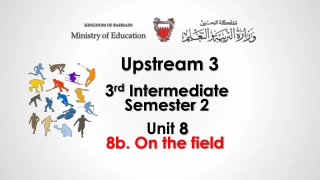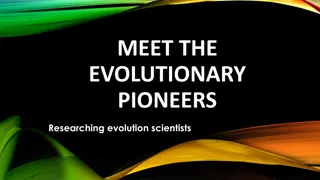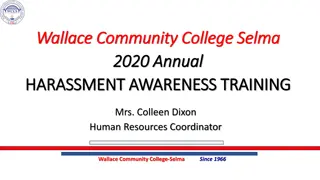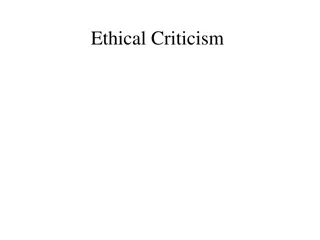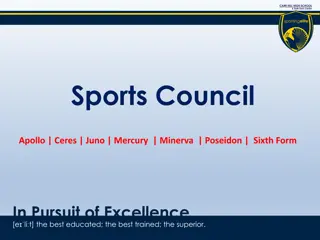David Foster Wallace: Sports, Ethics, Literature
David Foster Wallace, born in 1962 in Ithaca, NY, was known for his contributions to sports, ethics, and literature. He struggled with addiction and depression throughout his life, best known for works like "Infinite Jest" and "This is Water." Despite his challenges, Wallace's impact on the literary world remains significant.
Download Presentation

Please find below an Image/Link to download the presentation.
The content on the website is provided AS IS for your information and personal use only. It may not be sold, licensed, or shared on other websites without obtaining consent from the author.If you encounter any issues during the download, it is possible that the publisher has removed the file from their server.
You are allowed to download the files provided on this website for personal or commercial use, subject to the condition that they are used lawfully. All files are the property of their respective owners.
The content on the website is provided AS IS for your information and personal use only. It may not be sold, licensed, or shared on other websites without obtaining consent from the author.
E N D
Presentation Transcript
*David Foster Wallace Sports|Ethics|Literature 09.23.2016
*DFW Born 1962 in Ithaca, NY Father was an analytical philosophy professor; mother was an award-winning high school English teacher who was obsessed with grammar Youth tennis player in Illinois, regionally ranked Stopped playing seriously when he discovered pot and math Went to Amherst College ( 85) and majored in philosophy and English His undergraduate theses got published as a novel (The Broom of the System, 1987), and Fate, Time, and Language Most well-known for Infinite Jest (1996) and This is Water (2005) Struggled throughout his life with addiction, depression, dependencies Died at age 46 in 2008 Recently the subject of a film, The End of the Tour
* In between creative writing projects, Wallace took on a number of non-fiction essay projects where he presented himself as schmucky and called his observational writing style like being a giant floating eyeball * Big Red Son AVN Awards * The View From Mrs. Thompson s rural midwestern town after 9/11 * Consider the Lobster Maine Gourmet Food Festival * Aboard the Straight Talk Express John McCain presidential campaign * A Supposedly Fun Thing I ll Never Do Again luxury cruise * Wallace was an editor s nightmare, demanding lengthy footnotes, near-complete control over his writing style, and threatening to pull pieces unless he got what he wanted * He was also a fact checker s nightmare: many of the things that he wrote simply could not be verified, and he took to calling his essays creative non-fiction *Wallace s Non-Fiction Essays
*Derivative Sport in Tornado Alley (1990) *Short version published as Tennis, Trigonometry, Tornadoes: A Midwestern Boyhood in Harper s *Supposedly a memoir about Wallace s experiences as a near-great junior tennis player in windy, flat Illinois *Suggests Wallace had a style of craven retrieval where acceptance is its own verve *Tells an anecdote about practicing when a sudden tornado comes down and launches he and his partner pinwheeling through the air * Ultimately, it s only something he dreams as he practices * A sort of shaggy dog story that offers justifications for why Wallace never became a great tennis player * Suggests Wallace never had the focus or the physical skills to become an elite tennis player *DFW s Tennis Essays
*How Tracy Austin Broke My Heart (1992) *Originally published in the Philadelphia Inquirer *In his archives at the University of Texas, this critique of the sports memoir was originally about three athletes (Kirby Puckett and Spencer Haywood were the other two), but he narrowed it down to focus on just Austin *He s more of a specialist on tennis, of course, but the critique of the vapidity of her narrative mind now has a bit of a gendered component to it *Continues his thesis about how the athlete has to be able to shut down conscious thought in order to be great *But, in the process, gives a new and important role to the spectator but perhaps himself most of all, as a former near-great tennis player himself *DFW s Tennis Essays
*Michael Joyces Professional Artistry as a Paradigm of Certain Stuff about Choice, Freedom, Discipline, Joy, Grotesquerie, and Human Completeness (1995) *Originally published as The String Theory in Esquire *First ethnographic essay on tennis *In his notebooks on Joyce, he describes much more about Joyce talking about sex and sports gambling * Why doesn t he include any of this in his essay? * Why Joyce at all, and not some other highly ranked played? *DFW s Tennis Essays
*Democracy and Commerce at the US Open (1996) Tennis magazine *A lengthy critique of professional sports events as being all about consumption *We might think sports as gladiatorial fields of democracy, but look around and see how much money is being spent. *DFW s Tennis Essays
*Roger Federer as Religious Experience (2006) NYTM: Play * Basically the last writing that gave Wallace any pleasure, as he was struggling mightily with depression at this point in his life * One of the lines from this book to describe Federer, as both flesh and, somehow, light, became the title of the posthumous essay collection BothFlesh and Light * Federer a continuation of traditional forms of tennis combined with the evolution in racquet technology is like whistling Mozart at a Metallica concert * Thesis about the kinetic beauty of Federer, in a scene also made poignant by the child cancer patient flipping the coin, reconciling humans to the fact that they have bodies that are mortal and will die * Ultimately suggesting, perhaps, that not only will Federer inspire future tennis players, but that he inspires Wallace himself * Wallace tries to capture the form of tennis the way it is played in the stylistic form of his own writing *DFW s Tennis Essays


